Environmental Integration on ...
Online Conference
10 Apr 2025 / 12 Apr 2025 read more

Haidy Ahmed
Conference Coordinator
[email protected]
(+20) 3 5763827 | (+20) 3 5763828
(+20)1000028021

Associate Provost for Research and Community Service / Associate Professor / Director - The Center for Innovation and Entrepreneurship, American University of Ras Al Khaimah.
Subscribe to our newsletter
The escalating environmental and social challenges of our time demand urgent and innovative solutions. Resource depletion, climate change, and economic inequities highlight the necessity of rethinking traditional systems to prioritize sustainability, resilience, and inclusivity. Addressing these issues requires transformative approaches that leverage advanced tools and bold entrepreneurial initiatives.
By integrating artificial intelligence (AI), the principles of the circular economy, and entrepreneurial innovation, we can reimagine industries and create scalable solutions that drive both economic growth and environmental regeneration. AI's exceptional capability to analyze extensive datasets, enhance operational efficiencies, and produce practical insights not only expedites the shift towards sustainable methodologies but also reveals prospects for comprehensive transformation. The circular economy promotes the efficient use of resources, diminishes waste, and encourages regenerative systems, thereby facilitating the emergence of a future in which consumption and production exist in a state of equilibrium. Entrepreneurs play a pivotal role by leveraging these technologies and principles to develop business models that deliver value while addressing pressing global challenges. Collectively, these dynamics propel advancements towards a future characterized by greater equity and sustainability.
The second edition of the Business Management, Entrepreneurship, and Sustainable Circular Economy conference now has an exciting new dimension and title: Disrupting for Good: AI, Entrepreneurship, and Sustainable Circular Economy. This updated title reflects our commitment to addressing the dynamic and transformative forces shaping today’s business and economic landscapes, particularly through the innovative applications of AI.
Conference Scope
The Second International Conference on Disrupting for Good: AI, Entrepreneurship, and Sustainable Circular Economy explores the dynamic interplay of technology, sustainability, and entrepreneurship in reshaping modern business practices. Participants will engage with topics such as the integration of AI into circular economy strategies, the development of innovative, sustainable business models, and the ethical implications of AI-driven solutions. The conference also addresses fostering collaboration between technologists, business leaders, policymakers, and environmentalists to accelerate the adoption of circular practices. By emphasizing actionable strategies and AI-powered innovations, the event highlights pathways to long-term viability, social inclusivity, and sustainable economic growth.
Statement of Purpose
This conference aims to catalyze meaningful change by advancing sustainable business practices, fostering ethical entrepreneurship, and embracing the transformative potential of artificial intelligence (AI) and circular economy principles. By providing a platform for diverse stakeholders to exchange ideas, research, and insights, the event seeks to explore how AI-powered tools can unlock innovative solutions to global challenges. Key objectives include investigating responsible AI applications in driving resource efficiency and environmental regeneration, fostering partnerships across sectors to accelerate the adoption of sustainable practices, and empowering entrepreneurs to integrate AI into scalable business models. Through keynote addresses, interactive sessions, and collaborative discussions, participants will be equipped to inspire action, build impactful networks, and contribute to shaping a resilient, inclusive, and sustainable global economy.
1.1. Generative AI: Driving Innovation in Sustainable Business Solutions
1.2. AI for Climate Change: Transforming Business Strategies for a Greener Future
1.3. Neuromorphic Computing: Advancing Business Applications with Sustainable AI
1.4. Quantum Computing and AI: Unlocking Opportunities for Sustainability
1.5. AI in Healthcare: Balancing Technological Growth and Sustainability Goals
1.6. Autonomous Systems: Promoting Sustainable Development through Robotics
1.7. Smart Cities: AI-Driven Urban Planning for Sustainable Business Integration
1.8. AI in Business Optimization: Sustainable Decision-Making and Resource Efficiency
1.9. Collaborative AI: Enhancing Partnerships for a Circular Business Approach
1.10. Multi-Modal AI: Revolutionizing Business Sustainability Through Integrated Technologies
2.1. Circular Innovation: Driving Sustainable Solutions and Disruptive Technologies
2.2. Circular Business Models and Value Propositions for Entrepreneurs
2.3. Startups in the Circular Economy: Success Stories and Lessons Learned
2.4. Circular Economy Incubators: Supporting Sustainable Entrepreneurs
2.5. Design Thinking for Circular Innovation in Business
2.6. Financing Circular Startups: Strategies and Investment Opportunities
2.7. Circular Innovation Ecosystems: Collaboration and Partnerships for Growth
2.8. Intellectual Property Rights in Circular Innovation
2.9. Circular Entrepreneurship in Emerging Industries and Markets
2.10. Social Impact Entrepreneurship in the Circular Economy
3.1. Leadership Strategies for Sustainability in Global Markets
3.2. Globalization and Business Innovation: Leadership Perspectives
3.3. Entrepreneurial Leadership for Sustainable Economic Growth
3.4. Building Resilience in Leaders for Circular Economy Initiatives
3.5. Leadership in Technology-Driven Business Transformation
3.6. Skills Development for Future-Ready Business Leaders
3.7. Navigating Cultural Diversity in Global Business Leadership
3.8. Leadership for Addressing Environmental and Social Challenges
3.9. Transformational Leadership in Emerging Market Contexts
3.10. Sustainable Leadership Models for Industry Disruption
4.1. Circular Economy Business Models: Strategies for Success
4.2. Product-as-a-Service: Transitioning from Ownership to Access Models
4.3. Closed-Loop Systems: Maximizing Resource Efficiency
4.4. Circular Business Hubs: Enhancing Collaboration in the Sharing Economy
4.5. Circular Fashion: Transforming the Clothing Industry for Sustainability
4.6. Circular Packaging: Innovations for Eco-Friendly Materials and Design
4.7. Zero-Waste Initiatives in Business Operations
4.8. Circular Tourism: Promoting Sustainable Travel Experiences
4.9. Circular Cities: Urban Planning for Sustainable Business Practices
4.10. Regenerative Agriculture: Business Models for Sustainable Food Systems
5.1. Impact Investing and Financing Circular Business Models
5.2. Key Performance Indicators (KPIs) for Sustainability Success
5.3. Triple Bottom Line (TBL) Approaches in Business Economics
5.4. Life Cycle Assessment (LCA) for Circular Economy Initiatives
5.5. Social Impact Measurement and Reporting in Business Practices
5.6. Circular Economy Metrics for Financial Decision-Making
5.7. Blockchain Applications for Transparency in Circular Economy Financing
5.8. Innovative Public-Private Partnerships for Circular Economy Initiatives
5.9. Risk Management in Circular Business Investments
5.10. Crowdfunding Strategies for Scaling Circular Economy Ventures
6.1. Ethics in AI: Addressing Bias and Ensuring Fairness
6.2. Privacy Concerns in AI and Circular Economy Practices
6.3. Regulating Innovation: Balancing Growth and Responsibility
6.4. AI for Social Good: Reducing Inequalities through Technology
6.5. Social Equity and Inclusion in Circular Business Models
6.6. Job Creation in the Circular Economy: Opportunities and Challenges
6.7. Sustainable Consumption and Behavioral Change for Economic Growth
6.8. Social Innovation through Circular Economy Practices
6.9. Community Engagement for Sustainability in Business Transformation
6.10. Biodiversity Conservation within Circular Economy Initiatives
7.1. Sustainable Design Principles for Business Success
7.2. Material Selection and Eco-Design in Product Development
7.3. Modularity and Design for Disassembly in Business Processes
7.4. Biomimicry: Nature-Inspired Solutions for Circular Design
7.5. Sustainable Packaging Innovations for Circular Business Models
7.6. Collaborative Design and Open-Source Innovation Models
7.7. Circular Design Metrics and Tools for Evaluation
7.8. Designing for Consumer Behavior Change toward Sustainability
7.9. Design Thinking for Business Model Transformation
7.10. Emerging Market Solutions: Innovations in Circular Design
8.1. Circular Supply Chain Design: From Sourcing to Distribution
8.2. Product Recovery and End-of-Life Management Strategies
8.3. Technology and Digitalization in Circular Supply Chains
8.4. Circular Transportation and Logistics for Sustainability
8.5. Sustainable Sourcing and Procurement in Circular Practices
8.6. Advanced Metrics and Standards for Supply Chain Performance
8.7. Transparency and Traceability in Circular Supply Chains
8.8. Decentralized Networks for Circular Supply Chain Resilience
8.9. Circular Product Life-Cycle Strategies for Logistics Optimization
8.10. Risk Management for Circular Supply Chain Resilience
9.1. AI and Machine Learning for Circular Economy Applications
9.2. Blockchain Technology for Circular Business Operations
9.3. IoT and Smart Systems for Resource Optimization
9.4. Data Analytics for Decision-Making in Circular Initiatives
9.5. Digital Platforms for Collaboration in the Circular Economy
9.6. Virtual Reality (VR) for Business Training and User Engagement
9.7. Augmented Reality (AR) in Circular Design Processes
9.8. Cybersecurity Strategies for Digital Circular Business Ecosystems
9.9. Cultivating Digital Literacy for Sustainable Business Transformation
9.10. Building Cross-Sector Synergies through Digital Innovations
10.1. Carbon Footprint Reduction Strategies in Business Operations
10.2. Waste Reduction Initiatives for Measurable Environmental Impact
10.3. Renewable Energy Integration into Business Models
10.4. Biodiversity Conservation Efforts in Circular Economy Practices
10.5. Community-Centric Initiatives for Equity in Circular Economy Practices
10.6. Sustainable Development Goals (SDGs) in Business Practices
10.7. Transparency and Accountability in Circular Economy Efforts
10.8. Measuring Sustainability: Tools and Methodologies
10.9. Environmental Impact Assessments in Business Ventures
10.10. Leadership Models for Advancing Social Responsibility
| Title | Date |
|---|---|
| Abstract Submissions Deadline | 30 Apr 2025 |
| Last Notification for Abstract Acceptance | 15 May 2025 |
| Full Paper Submission Deadline | 30 Jun 2025 |
| Last Notification for Full-Paper Acceptance | 15 Jul 2025 |
| Early Payment Deadline | 30 Jun 2025 |
| Regular Payment Deadline | 30 Sep 2025 |
| Late Payment Deadline | 30 Nov 2025 |
| Letter of Visa (for delegates who need visa entry) | 30 Aug 2025 |
| Letter of Final Acceptance | 30 Nov 2025 |
| Conference Program | 28 Dec 2025 |
| Conference Launch | 28 Jan 2026 |
The registration fee does not cover accommodation or travel expenses. A list of accommodation options can be suggested by our team if available. Please contact [email protected] for inquiries.
We recommend that all authors take advantage of the benefits that IEREK offers, including various attendance types, publishing opportunities, and opportunities for discounts and waivers.
We are pleased to inform all applicants that they can use their previous publications to register for an IEREK membership, which offers a special discount.
IEREK offers a special discount to applicants from collaborative universities that have signed an MoU with IEREK to host or co-host one of its conferences.
IEREK also provides special discounts to authors from low and medium-income countries.
IEREK offers many alternative venues for publication. All accepted submissions to the conference, after a rigorous double-blinded peer-review process by the respective and highly-distinguished Editorial Board, will be published through one of the following venues:
Selected papers (according to the preference of the author) will be published in one of the Scopus-indexed or Web of Science-indexed book series or through related journal special issues. See the Publishing opportunities section.
Accepted papers (according to the preference of the author) will be published through the Springer book series or through a special issue in one of the IEREK press open-access Journals.
IEREK offers many types of registrations that are diverse in registration fees; applicants can choose the type they are familiar with as follows:
Participants who are PhD holders, post-doctoral researchers, and universities’ affiliated professors and experts in the field.
Must provide proof of enrollment in a university by providing an enrollment certificate and/or a valid university ID (with issue/expiry date) etc.
Participants who are not affiliated with universities such as practitioners, policymakers, entrepreneurs, etc.
Have access to the event to enjoy the discussions, coffee breaks, and lunch as a co-author or audience.
An author may need to attend the conference for presentation only to present a research idea without publication or full paper submission; the fee in this case will be decreased.
| Type of Registration | Early Payment Deadline 30 Jun 2025 |
Regular Payment Deadline 30 Sept 2025 |
Late Payment Deadline 30 Nov 2025 |
|---|---|---|---|
| Scopus indexed-ASTI Book by Springer | |||
| Student | 350 € | 400 € | 450 € |
| Academic | 400 € | 450 € | 500 € |
| Professional | 450 € | 500 € | 550 € |
| Co-author/ Audience | 200 € | 250 € | 300 € |
| Open Access IEREK Press Journals | |||
| Student | 250 € | 300 € | 350 € |
| Academic | 300 € | 350 € | 400 € |
| Professional | 350 € | 400 € | 450 € |
| Co-author/ Audience | 200 € | 250 € | 300 € |
IEREK offers various types of participation. Applicants can apply for in-person attendance to benefit fully from conference discussions and knowledge exchange.
IEREK also offers virtual attendance for authors to present their research papers online; however, we strongly encourage all applicants to attend the conference in person.
Type 1:
Through IEREK – Springer Nature Interdisciplinary book series “Advances in Science, Technology, and Innovation” (ASTI). See previous publication here.
Type 2:
The physical fee covers:
* Each research paper should have one main author who should pay the full fee (Author fees) regardless of attendance. Co-authors, each, have their fees to pay to attend the event. This applies to online attendance as well as physical attendance.
* A research paper fee allows only one author, whether main or co-author, to attend the conference and receive only one conference kit. Extras can be requested for an additional fee.
| Type of Registration | Early Payment Deadline 30 Jun 2025 |
Regular Payment Deadline 30 Sept 2025 |
Late Payment Deadline 30 Nov 2025 |
|---|---|---|---|
| Scopus indexed-ASTI Book by Springer | |||
| Student | 300 € | 350 € | 400 € |
| Academic | 350 € | 400 € | 450 € |
| Professional | 400 € | 450 € | 500 € |
| Co-author/ Audience | 200 € | 250 € | 300 € |
| Open Access IEREK Press Journals | |||
| Student | 200 € | 250 € | 300 € |
| Academic | 250 € | 300 € | 350 € |
| Professional | 300 € | 350 € | 400 € |
| Co-author/ Audience | 150 € | 200 € | 250 € |
IEREK offers virtual attendance, providing authors with a unique link to join the conference sessions and present their papers as per the announced program.
IEREK is dedicated to optimizing the benefits for each delegate so, similar to physical attendance, when it comes to virtual attendance IEREK also provides two venues for publication, which are:
Type 3:
Online attendance + Publication through Scopus and Web of Science indexation Through IEREK – Springer Nature Interdisciplinary book series “Advances in Science, Technology, and Innovation” ASTI, see previous publications here.
Type 4:
The online fee covers:
* Each research paper should have one main author who should pay the full fee (Author fees) regardless of attendance.
* Co-authors, each, have their fees to pay to attend the event. This applies to online attendance as well as physical attendance.
* Participants can use only one type of discount opportunity, which meets their preferences.
* Authors should contact the conference manager through this email [email protected] to consider the discount and waiving for all the above cases so that the conference manager can provide an exclusive invoice for each case.
| Afghanistan, Algeria, Angola, Bangladesh, Benin, Bhutan, Bolivia, Burkina Faso, Burundi, Cabo Verde, Cambodia, Cameroon, Central African Republic, Chad, Comoros, Congo, Congo Dem. Rep., Côte d'Ivoire, Djibouti, Egypt, Eritrea, Eswatini, Ethiopia, Gambia, Ghana, Guinea, Guinea-Bissau, Haiti, Honduras, India, Iran, Jordan, Kenya, Kiribati, Kyrgyz Republic, Lao PDR, Lebanon, Lesotho, Liberia, Madagascar, Malawi, Mali, Mauritania, Micronesia, Mongolia, Morocco, Mozambique, Myanmar, Nepal, Nicaragua, Niger, Nigeria, Pakistan, Papua New Guinea, Philippines, Rwanda, Samoa, São Tomé and Principe, Senegal, Sierra Leone, Solomon Islands, Somalia, South Sudan, Sri Lanka, Sudan, Syria, Tajikistan, Tanzania, Timor-Leste, Togo, Tunisia, Uganda, Ukraine, Uzbekistan, Vanuatu, Vietnam, Yemen, Zambia, Zimbabwe |
iDirect is a new and efficient platform that allows direct submissions of research papers across various fields of science. iDirect accepts and covers all fields of science, not only those related to a particular conference. Individual authors are encouraged to submit their research discussing new ideas and presenting solutions to everyday problems that fall under numerous scientific themes. The iDirect platform is integrated into the peer review system for online conferences. You can publish your work through iDirect without the need to attend the conference or adhere to any submission deadlines. iDirect accepts a wide range of disciplines, eliminating the need to align with the conference's specific theme or scope. Based on the scope of your research, we will identify the most relevant proceedings for publication. The editor will schedule a discussion with you to review your presentation before proceeding to the peer-review process. Learn more here!
IEREK puts a lot of effort into expediting the peer review process to publish articles as quickly as possible. This requires prompt responses from all authors to the editors' comments, if any. Your swift response is highly appreciated to advance the production process and get your articles online. We prioritize the first author to respond as per our formula. The conference proceedings will be divided into multiple books, with the first one scheduled for publication within 3 months after the conference date. We encourage all authors to aim for publication in the first release.
For participants who need Entry Visas to the country where the conference will be held, IEREK will issue the corresponding invitation letter for accepted applicants to facilitate visa issuance. Please notice that we will attempt to assist you in obtaining a visa but the responsibility is yours and the decision rests solely with the appropriate Embassy. For the requirements of issuing a visa letter please read more here!
All accepted submissions to the conference, after a rigorous double-blinded peer-review process by the respective and a highly-extinguished Editorial Board, will be published in one of the following:
 Advances in Science, Technology and Innovation (ASTI), an IEREK Interdisciplinary book series published by Springer Nature. (Scopus indexed)
Advances in Science, Technology and Innovation (ASTI), an IEREK Interdisciplinary book series published by Springer Nature. (Scopus indexed) About ASTI
Advances in Science, Technology & Innovation (ASTI) is a series of peer-reviewed books based on important emerging research that redefines the current disciplinary boundaries in science, technology and innovation (STI) in order to develop integrated concepts for sustainable development. It not only discusses the progress made towards securing more resources, allocating smarter solutions, and rebalancing the relationship between nature and people, but also provides in-depth insights from comprehensive research that addresses the 17 sustainable development goals (SDGs) as set out by the UN for 2030.
The series draws on the best research papers from various IEREK and other international conferences to promote the creation and development of viable solutions for a sustainable future and a positive societal transformation with the help of integrated and innovative science-based approaches. Including interdisciplinary contributions, it presents innovative approaches and highlights how they can best support both economic and sustainable development, through better use of data, more effective institutions, and global, local and individual action, for the welfare of all societies. The series particularly features conceptual and empirical contributions from various interrelated fields of science, technology and innovation, with an emphasis on digital transformation, that focus on providing practical solutions to ensure food, water and energy security to achieve the SDGs. It also presents new case studies offering concrete examples of how to resolve sustainable urbanization and environmental issues in different regions of the world. Read More.
The ASTI series is fully indexed in Scopus and any chapter/ paper published as part of this series will be seen on the Scopus database. Some titles have been successfully indexed or submitted for indexation in Web of Science (ISI).
 Sustainable Economy and Ecotechnology (SEE), an IEREK Interdisciplinary book series published by Springer Nature.
Sustainable Economy and Ecotechnology (SEE), an IEREK Interdisciplinary book series published by Springer Nature. About SEE
The "Sustainable Economy and Ecotechnology" (SEE) book series acts as timely initiative within the modern academic sphere, creating a strong connection between technology, research, policy, and successful practical implementation for sustainable future. In an age marked by increasingly urgent environmental challenges and the critical importance of sustainable development. The series editor is dedicated to steering positive efforts to provide a strong platform for the dissemination of high-quality research focusing on sustainable business, technology, and ecological conservation. Through the contributions of experts in the field, “SEE” endeavors to create a transition toward sustainable economic models and technologically driven ecological awareness.
In a world where the need for sustainable business practices is essential, the "SEE" series emerges inspired and innovative ideas through encouraging researchers, policymakers, and practitioners for driving positive change to merge sustainability and technology with business and economy. Through its commitment, ‘’SEE” will fill the gap between theory and practice, it strives to inspire transformative action and facilitate the transition towards a more sustainable, ecologically harmonious global community.
The "SEE" series welcomes submissions of select papers from conference proceedings, monographs, textbooks, and edited volumes, aiming to cultivate a comprehensive understanding of sustainable development by shining a spotlight on a diverse array of topics that collectively contribute to the advancement of a Sustainable Economy and Ecotechnology. Holding a wide-ranging scope of topics, including but not limited to sustainable urban development, renewable energy, circular economy principles, green technology innovation, and conservation strategies. The series embarks on a comprehensive exploration of the multifaceted dimensions of sustainable economy and ecological advancement.
“SEE" series stands as evidence to the potential of collaborative knowledge-sharing in steering humanity towards a more sustainable future. Authors, researchers, contributors, and scientists from all scientific disciplines, of business & economy, sustainability, and ecology are all invited to contribute to this series for fostering a collaborative and interdisciplinary approach to the advancement of Sustainable Economy and Eco-technology.
 IEREK Press Journals, a multidisciplinary publisher that aims to cultivate and disseminate research.
IEREK Press Journals, a multidisciplinary publisher that aims to cultivate and disseminate research.
ESSD is a peer-reviewed, scholarly journal that aims to systematically develop the research-driven curiosity and evidence-based discourse of aspiring scholars that seek to contribute to the academic community. As the world is currently living in an age of information where sources are widely available on the Internet, we at ESSD seek to efficiently utilize the available information to help create robust and evidence-based knowledge. In the process, we offer researchers, in general, and young and aspiring ones in particular a quicker way to get their work published and gain exposure through online open access. We pride ourselves on getting submitted work to be published quickly, through the use of our worldwide pool of subject specialist peer reviewers. Find out more about ESSD International Journal here.

ARChive is an open-access journal that publishes conference proceedings on a wide range of topics relating to social sciences. Consequently, it accepts original research papers on a wide spectrum of subjects. ARChive is a journal published on behalf of researchers that perpetually make an effort to contribute to their fields and provide them with high visibility of research submitted. The series publishes, both, theoretical and experimental high-quality papers of current and perpetual interest. It serves to cultivate, propagate, and essentially archive academic research that has been authored and submitted for academic conferences.
Find out more about ARChive International Journal here.

Resourceedings is an open access journal that publishes conference proceedings. Conference proceedings compromise of different disciplines, ranging from Engineering including built environments, architecture, and sustainability. Disciplines also include Technology and Energy. Resourceedings is a journal that publishes research articles that shed light on different crucial issues in order to provide them with solutions and suggestions. The journal publishes articles submitted by researchers of interest in different fields.
Find out more about Resourceedings International Journal here.
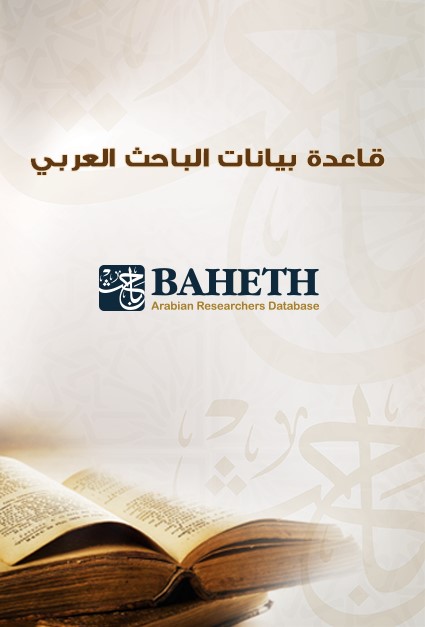
“BAHETH” in Architecture, Engineering, and Technology, is a peer-reviewed journal that publishes original academic research in the fields of Architecture, Engineering, and Technology. The journal welcomes research in the Arabic Language with an English Abstract. Papers submitted to this journal in Arabic must be presented in the English Language in the conference.
Find out more about BAHETH International Journal here.
IEREK has an unyielding policy regarding plagiarism. We believe that copying/taking the ideas and work of other Authors without permission and credit is fraudulent. The Reviewing committee and IEREK employees have the authority to reject a paper during its reviewing process, based on the paper being subjected to either minor or major plagiarism.
Authors must refer to, and abide by, the following instructions in submitting their abstracts/ papers:
This is not a prerequisite for presenting your work at the conference. Meaning, you can present your submitted abstract without intending to publish your work.
This process can only be initiated after payment completion and confirmation:
Registration
To help the organizers plan for inter-disciplinary dialogue, participants are requested to choose from the conference themes/ Topics upon registration.
They must also refer to, and abide by, the following instructions in registering and submitting their abstracts/ papers:
Types of Participation
Organized from the comfort of your own home, the conference offers a virtual attendance option for your convenience. That said, participants will have a chance to present their abstract/research, online, and have their work considered for publication in the proceedings.
Virtual presenters are required to submit an abstract and extend this abstract following the “author instructions” below and before the deadline (see Important Dates). At least one author must pay the registration fee (see Registration & Fees).
For any reason, authors may wish to submit pre-recorded video presentations no later than 15 days prior to the conference. Alternatively, they may wish to record a voice-over PowerPoint presentation for submission to the conference organizers.
Organized at the American University of Ras Al Khaimah, UAE, offering a Physical attendance option for your convenience. That said, participants will have a chance to present their abstract/research, on campus, and have their work considered for publication in the ASTI Series by Springer as part of the conference proceedings.
See Author Instructions and Registration & Fees for more information.
If your extended abstract (short paper) is accepted, it may be published in the conference proceedings book in the Advances in Science, Technology & Innovation Book Series by Springer (indexed in Scopus) even if you are not attending the conference. In this case, the accepted work will not be included in the final conference program and the fee will cover the cost of editorial handling and peer-review evaluation of your paper (See Author Instructions and Publishing Opportunities)
Non-presenting participants may also wish to attend the conference as Audience Members or Co-authors contributing to an already submitted abstract/ paper.
Attending conferences is very beneficial, especially, on the professional level; conferences are full of people promoting new ideas which will expand your knowledge and undoubtedly help your career.
Moreover, all conference papers are archived online in the E-Library of IEREK‘s website where they are immediately and permanently available to the international scientific community.
American University of Ras Al Khaimah also known as RAK and AURAK is a public and non profit higher education establishment located in the city of Ras Al Khaimah, United Arab Emirates. As American University of Ras Al Khaimah is ranked amongst top 60 universities in the Arab Region by QS World University Rankings. The university has also received 5 Stars overall in the QS Stars Rating System by QS Top Universities.
As the highest peak in the UAE, Jebel Jais offers breathtaking views and thrilling experiences. Visitors can drive along the scenic mountain roads or enjoy activities like hiking, zip-lining on the Jebel Jais Flight, or camping under the stars.

2. Al Marjan Island
This man-made island is a leisure destination featuring luxurious resorts, pristine beaches, and a vibrant waterfront promenade. It's an ideal spot for relaxation, water sports, and enjoying the sunset over the Arabian Gulf.

3. Dhayah Fort
This historic fort, perched on a rocky hilltop overlooking the Gulf, offers panoramic views of the surrounding landscape. Dating back to the 16th century, Dhayah Fort played a significant role in the region's defense and provides insight into Ras Al Khaimah's rich heritage.

4. RAK Beaches
Ras Al Khaimah boasts pristine beaches along its coastline, offering opportunities for sunbathing, swimming, and water sports. From family-friendly public beaches to exclusive resort shores, there's a beach for every preference.

5. Suwaidi Pearls Farm
Explore the fascinating world of pearl farming at Suwaidi Pearls Farm, where visitors can learn about the traditional Emirati pearl diving heritage and witness the cultivation process of these lustrous gems.

6. Al Jazirah Al Hamra
Step back in time with a visit to Al Jazirah Al Hamra, a well-preserved abandoned village that provides a glimpse into traditional Emirati architecture and way of life.

1. Ras Al Khaimah International Airport (RKT): Around 20-30 minutes by car.
2. Sharjah International Airport (SHJ): Approximately 45-60 minutes by car.
3. Dubai International Airport (DXB): Roughly 60-90 minutes by car.
1. Ride-sharing services: Apps like Uber and Careem operate in Ras Al Khaimah, offering convenient transportation options similar to taxis.
2. Public buses: Ras Al Khaimah has a public bus system operated by the Ras Al Khaimah Public Transport Authority, providing routes to various destinations within the emirate.
3. Private cars: Car rental services are also available for those who need them.
4. Intercity buses: There are intercity bus services connecting Ras Al Khaimah to other emirates in the UAE, as well as neighboring countries like Oman.
The distances between Ras Al Khaimah (RAK) and other emirates in the United Arab Emirates (UAE) vary, and travel times depend on factors such as traffic conditions and mode of transportation. Here are approximate distances and typical travel times by car:
- Distance: Approximately 100 kilometers (62 miles) as Travel time: Around 1 to 1.5 hours by car, depending on traffic conditions.
- Distance: Approximately 250 kilometers (155 miles) as Travel time: Approximately 2.5 to 3 hours by car.
- Distance: Approximately 60 kilometers (37 miles) as Travel time: Approximately 45 minutes to 1 hour by car.
- Distance: Approximately 50 kilometers (31 miles) as Travel time: Around 45 minutes by car.
- Distance: Approximately 80 kilometers (50 miles) as Travel time: Approximately 1 to 1.5 hours by car.
To secure a tourist visa for the UAE, reach out to either a UAE-based airline, a tour agency, or a hotel where you plan to stay. They will facilitate the visa application process on your behalf with the official visa-issuing authorities in the UAE.
Recommendations For Dubai Visa Issuance:
- WhatsApp Contact: +971566887025
Delegates in any event who cancel their registration due to special circumstances will receive refunds according to the following:
| Cancellation Policy | Up to 30 days before the event | 59 days before the event |
| Penalty | 100% | 20% |
A refund is not possible if
- An acceptance letter has been issued (Authors only)
- The proceedings of the event have been published (Authors only)
- A submitted manuscript is rejected by the editorial board after going through peer review.

ORCID, which stands for Open Researcher and Contributor ID, is a global, not-for-profit organization that aims to provide unique identifiers for authors, researchers, and scholars. ORCiD effectively eliminates duplication and errors regarding author names, affiliations, previous works, and all related academic data.
IEREK is a proud member of ORCiD, and we contribute directly to their initiative of clear and identifiable markers for researchers and scholars. As the first Egyptian partner to ORCiD in the organization’s history, we strongly believe that by utilizing ORCiD’s database and verification services, we become one step closer to achieving an accurate, and identifiable academic landscape.
We encourage our authors to input their ORCiD ID when registering for one of our conferences, submitting an abstract, or a full paper. By doing so, you directly link your research to your identity and affiliation and can showcase your various academic efforts all in one place. By Registering your ORCiD ID, you also increase your works’ visibility and provide easy access to your entire library of research and academic activity.
Click here to learn more about ORCiD, and here to register your ORCiD ID for free.
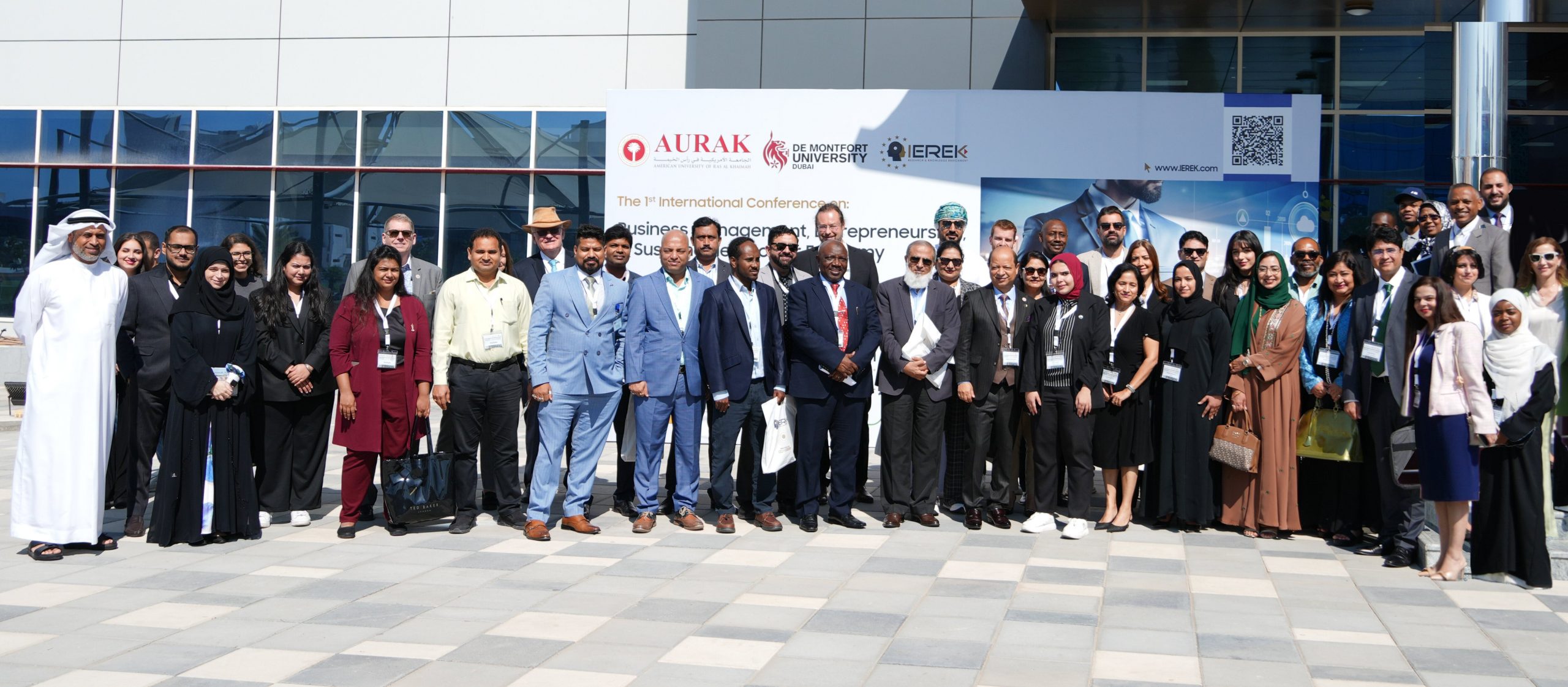
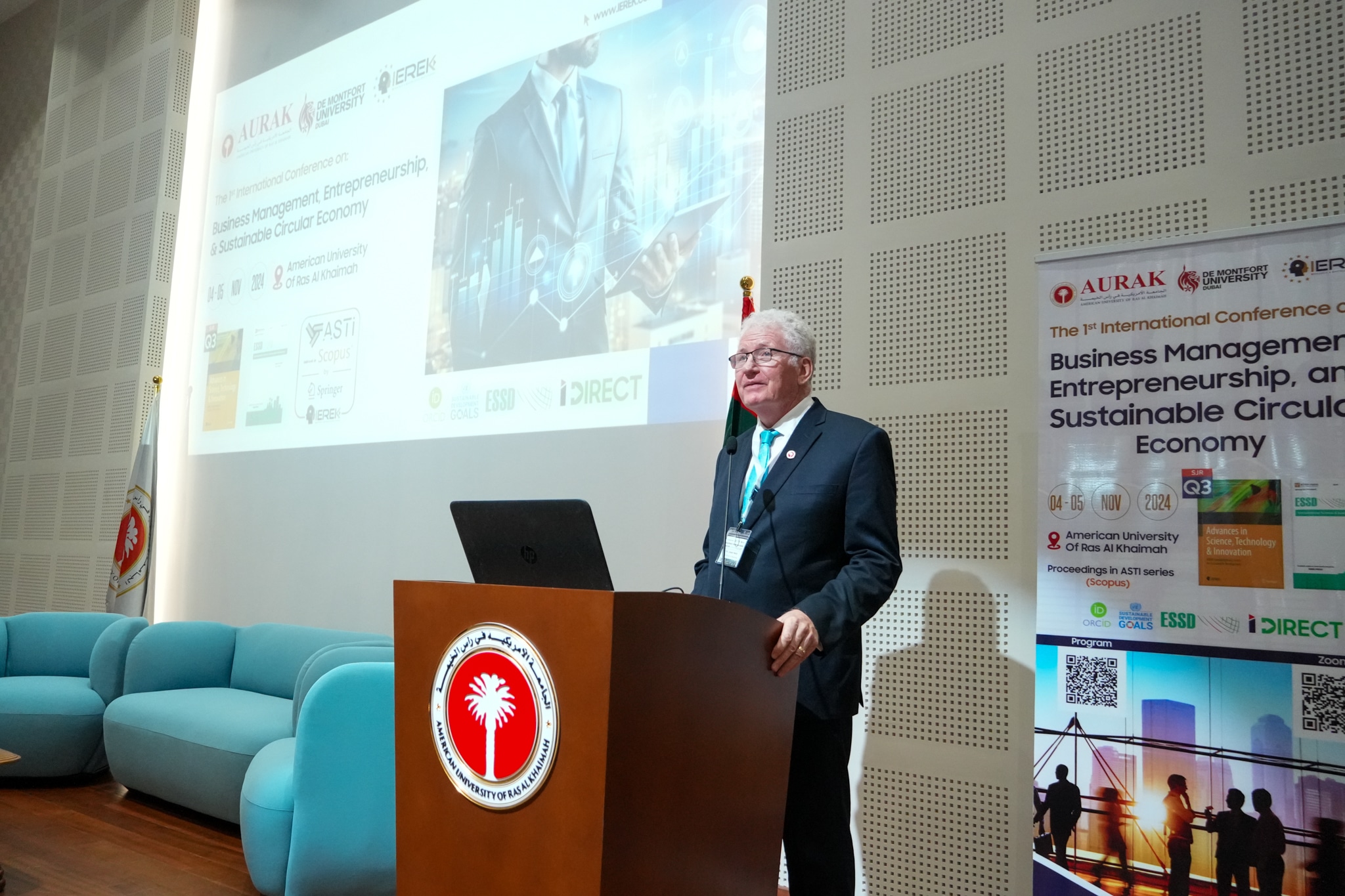
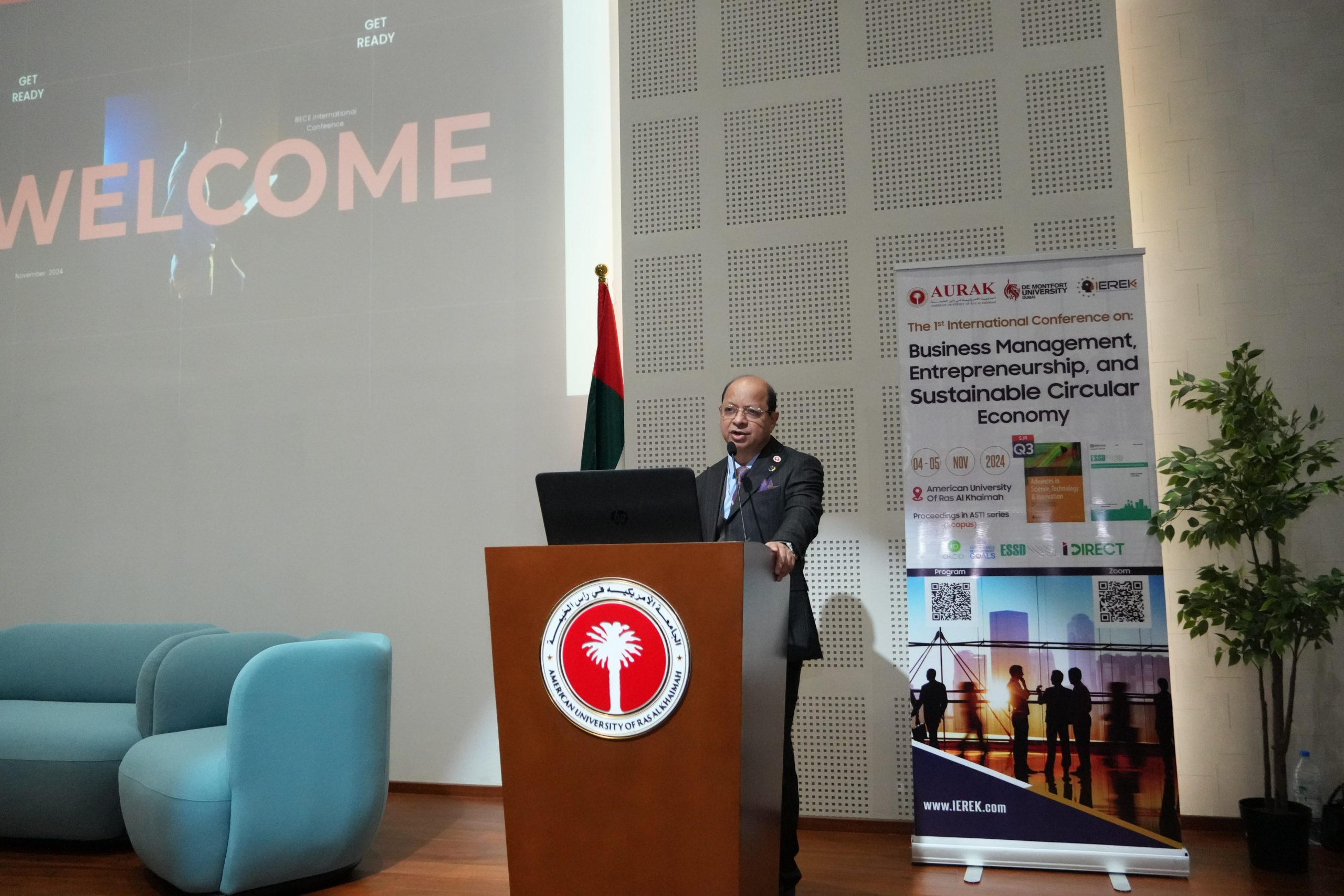
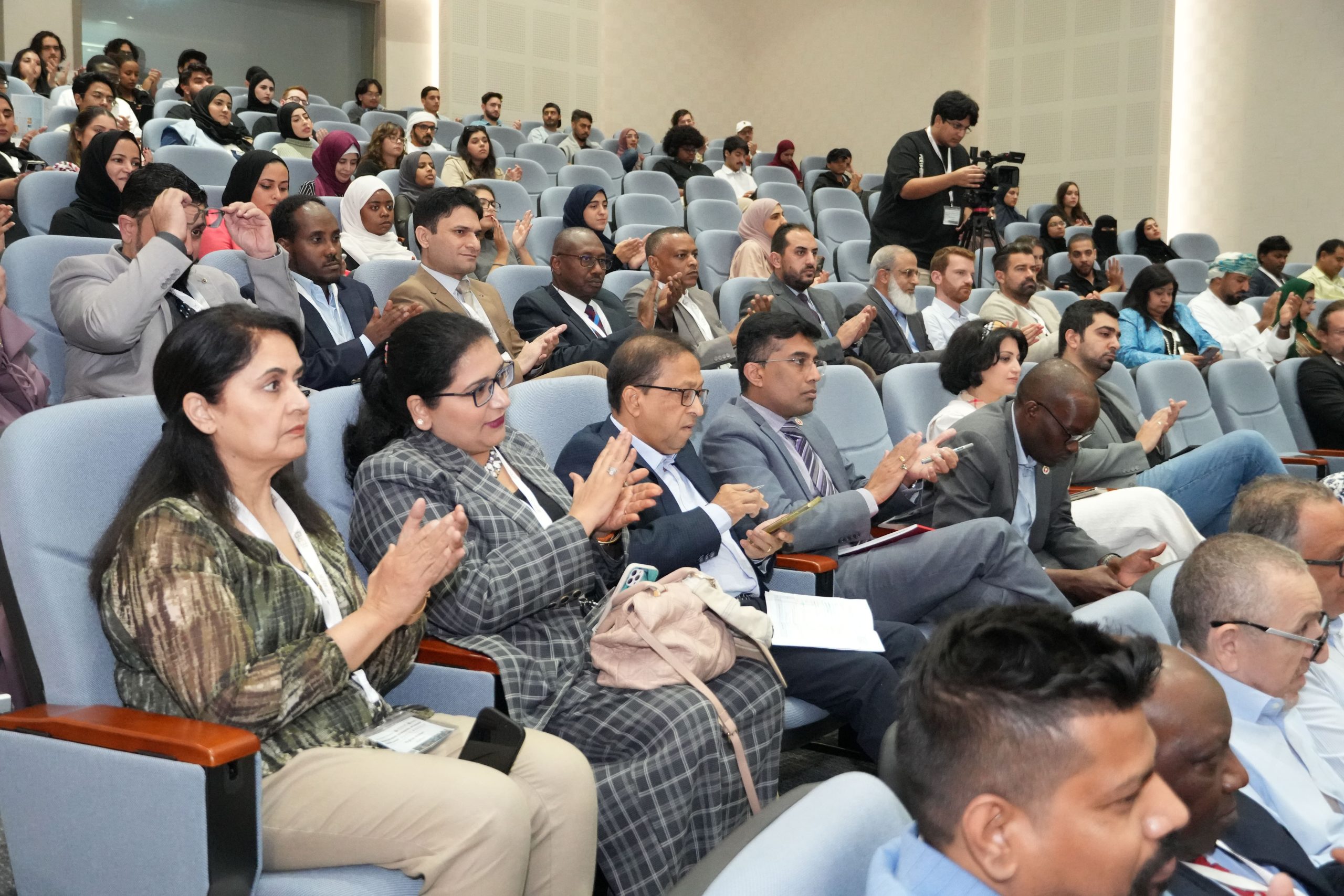
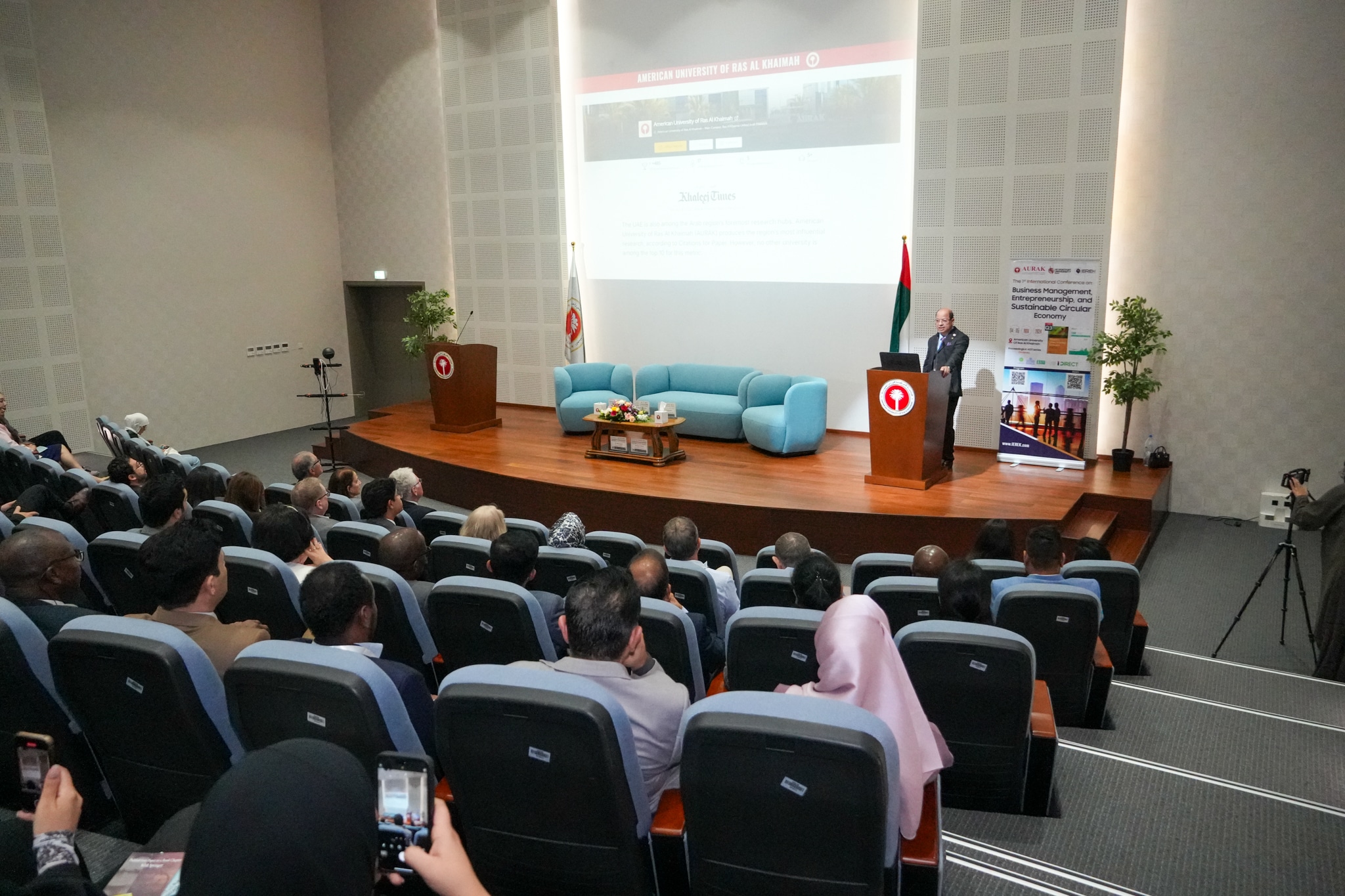





















Haidy Ahmed
Conference Coordinator
[email protected]
(+20) 3 5763827 | (+20) 3 5763828
(+20)1000028021

Associate Provost for Research and Community Service / Associate Professor / Director - The Center for Innovation and Entrepreneurship, American University of Ras Al Khaimah.
Subscribe to our newsletter
Join IEREK community